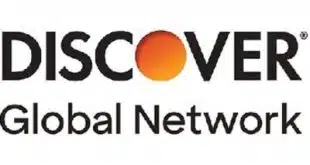Worldpay, WePay, and Stripe are among those viewed as attractive targets as the industry consolidates.
Apparently, investors are not ready to put away their checkbooks when it comes to payments companies.
Despite potential macro uncertainty stemming from the U.S. presidential election and the specter of the United Kingdom’s departure from the European Union (“Brexit”), payments companies—replete with sustainable recurring revenue models, organic growth tied to economic health and consumer use, and expandable services that many merchants can use—endure as stalwart vehicles for investment income.
Notable payments deals in the past couple of years include Global Payments Inc.’s $4.3 billion acquisition of Heartland Payments Systems Inc., Vantiv Inc.’s $1.65 billion buyout of Mercury Payment Systems LLC, the $2.35 billion paid by Total System Services Inc. (TSYS) to acquire TransFirst Holdings Inc., and scores of other deals no less important and emblematic of change in the industry.
The Strawhecker Group, an Omaha, Neb.-based payments-advisory firm, says it has performed “hundreds” of valuations in the past five years. Payments companies remain attractive to investors for multiple reasons. “Payments is [a] growth industry,” says Mike Strawhecker, principal at the firm.
“Payments feed off of organic economic growth and increased consumer usage,” Strawhecker says. He adds that the industry provides services beyond payments to merchants, and has a plethora of salespeople.
Another factor is the fragmentation of the industry, which could favor an investor with a rollup strategy, Strawhecker says.
“We expect there to continue to be a high level of activity,” Strawhecker continues. “We expected something of a slowdown recently due to uncertainties from Brexit as well as the upcoming U.S. elections, and we have seen something of a pause on activities from some European companies. Outside of this, it really feels like an active time in the market, based on the amount our phone has been ringing from both buyers and sellers.”
Potential Targets
Digging deeper, investors want a “solid portfolio,” says Marc Cochrane, an independent payments advisor based in Phoenix. They want the portfolio to be clean, tidy, and replete with disclosures to show fees are in order, he says. They want a distribution channel that is efficient, too.
Characteristics that set apart acquisition targets, according to Strawhecker, include differentiation via vertical expertise, especially in high-growth markets; portfolios with low attrition and high growth; differentiation among sales channels, which are evolved and sustainable; and management that has proven itself adept at cultivating unique and highly marketable strategies or technologies.
“The merchant-acquiring component of payments is still very alive and well,” says Cochrane. “There is nice growth and good margins. There is going to be plenty of M&A activity going forward.”
That statement is as true today as last year, when Cochrane, as co-author of the “Acquiring Acquirers: Why Insiders are Bullish on the Acquiring Sector” report published by Double Diamond Payments Research, noted, “Firms primed for go-forward success have a clear and executable strategy, strong leadership, a sound balance sheet, and demonstrable growth in operating margin.”
Potential targets include large, well-known companies, such as PayPal Holdings Inc., which became a public company again in 2015, and Discover Financial Services, according to a research note issued by Los Angeles-based Wedbush Securities. The note also indicates online processors Stripe, Adyen, and Klarna could be attractive mid-size acquisitions.
“Payments companies such as Global Payments, Vantiv, Alliance Data, and even Discover, could be acquired for their existing business by a larger payment company or bank,” says Wedbush analyst Gil Luria, via email. “On top of the list I would put Stripe. That [deal] would not only add scale to a potential acquirer, but also exciting technology and growth rates.”
Supplementing Growth
Luria hosted a call earlier this year with payments experts on payment-industry consolidation. In addition to identifying potential acquisition candidates, the group—consisting of former PayPal, American Express Co., and MasterCard Inc. executives—agreed that consolidation in the industry may accelerate.
“With large payments companies growing at peak rates and peak margins, there is only one direction those metrics can go—down,” Luria says. “In order to avoid decelerating growth, I would expect these companies to try supplementing their growth with acquisitions.”
Cochrane’s list of targets includes North American Bancard Holdings LLC, a Troy, Mich.-based payments processor; Total Merchant Services Inc., a Woodland Hills, Calif.-based processor; and New York City-based merchant-services provider iPayment Inc.
“Then there are medium and small bank portfolios that banks, as they need capital, will sell,” Cochrane says. Big banks, like JPMorgan Chase & Co., aren’t as likely to do much M&A in this business, he notes.
On Strawhecker’s list are Credorax Ltd., a Malta-based acquirer, as well as payment-services providers YapStone Inc., Walnut Creek, Calif., and WePay Inc., Redwood City, Calif.
Acquirers, too, are top candidates, he says. “The relatively smaller portfolios outside of the top 50 U.S. acquirers are always being looked at for acquisition,” Strawhecker says. “They often have a market niche or specific sales channel that fills a need for a bigger player.”
His big pick is Worldpay Group Plc, which offers U.S. processing services. After stripping away potential acquisition candidates that are owned by big banks, that are not First Data Corp., and that are not publicly owned, Worldpay is left, he says.
“This is not to say that the other companies in the top 15 are not attractive or saleable, it is more to say that, based on history, they may be less likely to sell in the immediate future, as there is more to un-do to sell, if you will,” says Strawhecker. “As such, the more likely candidates are slightly smaller than the top 15—those with $10 billion to $30 billion in annual processing volume.”
Strawhecker is not the only expert to cull the list of possible acquisition candidates. Merchant acquirer Square Inc. was dismissed from Luria’s roster because it is “still challenged with moving away from small-ticket merchants,” Luria’s research note said.
Who’s Buying?
The other side of the question—which entities might be likely to do the bidding—elicits a variety of suggestions. Luria, and the panel of payments industry experts he canvassed, said large technology companies like Facebook Inc., Alphabet Inc.’s Google, and possibly Apple Inc., could be buyers. Large payments companies, too, may be buyers, he says.
“The premise for this scenario is that these companies would want to own a global payment network to help monetize their customer base through [peer-to-peer payments], remittance, and advertising bundles,” Luria says.
Cochrane’s list of potential buyers includes Global Payments, which is experiencing a smooth integration of Heartland into the Global Payments infrastructure, and Vantiv, which is well along with its Mercury integration. TSYS will be tied up for some time as it completes the TransFirst integration, he adds.
Cochrane doubts First Data is likely to mount a major acquisition because “unfortunately, it is still tripped up by a huge amount of debt. While First Data has restructured [its debt] and lowered costs, it still has a big nut. I don’t see them doing anything but some tuck-in [deals] on the product side.”
Others that may be interested are private-equity firms, especially ones that have not made previous investments in payments companies, says Strawhecker, out of concern they may miss the opportunity. “We’re seeing a number of entrants that have not been in the industry historically,” he says.
Startup Frenzy
“Looking to last year, deal activity nearly quadrupled in payments startups, from [approximately] 60 deals completed in 2010, to more than 250 deals completed in 2015,” Strawhecker says. “Investors are pumping money into companies building new mobile-payment apps, small-business payment systems, and money-transfer services, among other things.”
Funding to payments startups reached close to $4 billion in 2015, with U.S. deals accounting for $2 billion of this, “a new record year for funding to the industry,” he says. “It can be expected that 2016 will match 2015 in investments in payments startups.”
Indeed, data from CBInsights, a New York City-based analytics firm that follows startup investment, show that point-of-sale startups will likely reap $625 million in funding this year, besting the 2015 total of $612 million.
Essentially, investors like payments not only because of the industry’s inherent connection to overall economic growth and its multiple services that can be sold to merchants, but also because of its predictable—and recurring—revenue model, Strawhecker says.
Besides that, there also is the industry’s capability of building atop existing processing technology and expanding profit margins. Other factors are that the industry requires relatively low investment to grow and incurs manageable risk, Strawhecker says.
“It seems like private-equity firms and venture capital are interested in the payments industry now more than ever,” he adds. “Existing industry players have a good pulse on others in the space, especially since it is a relatively small community where many decision makers personally know the potential targets.”
Notable Recent Payments Mergers & Acquisitions
(Dates may refer to when a deal was announced or closed)
2014
January
Global Payments Inc. buys Payment Processing Inc. for $420 million
May
Priority Payment Systems LLC merges with Cynergy Data LLC
June
Vantiv Inc. buys Mercury Payment System Systems for $1.65 billion
July
First Data Corp. buys Gyft Inc.
ACI Worldwide Inc. buys Retail Decisions Plc for $205 million
August
Heartland Payment Systems Inc. buys Leaf Holdings Inc.
October
Boku Inc. buys mopay Inc.
November
JetPay Corp. buys ACI Merchant Systems LLC.
2015
January
BluePay Processing Inc. buys CDI Technology Corp.
February
Mozido Inc. buys PayEase Corp.
March
Optimal Payments (now Paysafe) buys Skrill for $1.2 billion
April
MasterCard Inc. buys Applied Predictive Technologies Inc. for $600 million
July
First Data buys Transaction Wireless Inc.
October
Early Warning Services LLC buys clearXchange
December
Global Payments buys Heartland for $4.3 billion
2016
January
Total System Services Inc. (TSYS) buys TransFirst Holdings Inc. for $2.35 billion
June
Visa Inc. buys Visa Europe Ltd. for $23 billion
July
MasterCard buys VocaLink Holdings Ltd. for $920 million
Source: Digital Transactions News





